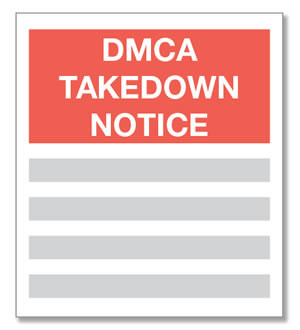

You may also be able to use copyrighted content for some non-commercial purposes, or if your use of the material doesn’t degrade the value of the original content. For example, it’s legal to use content for “transformative” purposes where you’re building upon the original work or creating something new from it. The DMCA’s Fair Use policy permits certain copyrighted material to be used in specific ways. Websites in countries that have signed the World Intellectual Property Organisation (WIPO) treaty are especially likely to honour DMCA takedown notices. Many sites will comply with the request in accordance with regional and international copyright laws. In this process, the Librarian of Congress, following a public proceeding conducted by the Register of Copyrights in consultation with the National Telecommunications and Information Administration of the Department of Commerce, may adopt exemptions permitting circumvention for certain noninfringing uses of copyrighted works.įor more resources on section 1201, including a tutorial and the Register’s past recommendations, see our Section 1201 page.Although the DMCA doesn’t apply outside of the US, some copyright owners send DMCA takedown notices to non-US websites. Section 1201 establishes a triennial rulemaking process to allow for consideration of temporary exemptions to the prohibition on circumvention. Second, it prohibits manufacturing, importing, offering to the public, providing, or otherwise trafficking in certain circumvention technologies, products, services, devices, or components.
#DMCA DEFINITION PASSWORD#
For example, the statute makes it unlawful to bypass a password system used to prevent unauthorized access to a streaming service. First, it prohibits circumventing technological protection measures (or TPMs) used by copyright owners to control access to their works. Section 1201 prohibits two types of activities. For more information and resources on how section 512 works, including sample takedown notices and counter-notices, see our Section 512 page. It also requires online service providers to designate an agent to receive copyright owners’ notices (and include the agent’s contact information on their websites and register them with the Copyright Office). Section 512 has several different requirements based on the types of activities in which the service provider engages. Section 512 shields online service providers from monetary liability and limits other forms of liability for copyright infringement-referred to as safe harbors-in exchange for cooperating with copyright owners to expeditiously remove infringing content if the online service providers meet certain conditions. To address this issue, Congress enacted section 512 of the Copyright Act, which (1) enabled copyright owners to have infringing online content removed without the need for litigation, and (2) facilitated the development of the internet industry by providing legal certainty for participating online service providers. In the late 1990s, Congress recognized the legal uncertainty facing the nascent internet industry resulting from online service providers’ potential legal liability for copyright infringement that occurred on their services.

Eligible claims include those for misrepresentations in notices or counter-notices under section 512 of the DMCA, as well as for copyright infringement and declarations of noninfringement.

The CCB is a voluntary, alternative forum to federal court designed for all types of creators and users of copyrighted materials. In 2020, Congress passed the Copyright Alternative in Small-Claims Enforcement (CASE) Act of 2020, which established the Copyright Claims Board (CCB) within the U.S. The three main updates were (1) establishing protections for online service providers in certain situations if their users engage in copyright infringement, including by creating the notice-and-takedown system, which allows copyright owners to inform online service providers about infringing material so it can be taken down (2) encouraging copyright owners to give greater access to their works in digital formats by providing them with legal protections against unauthorized access to their works (for example, hacking passwords or circumventing encryption) and (3) making it unlawful to provide false copyright management information (for example, names of authors and copyright owners, titles of works) or to remove or alter that type of information in certain circumstances. copyright law to address important parts of the relationship between copyright and the internet. In 1998, Congress passed the Digital Millennium Copyright Act (DMCA), which amended U.S.


 0 kommentar(er)
0 kommentar(er)
